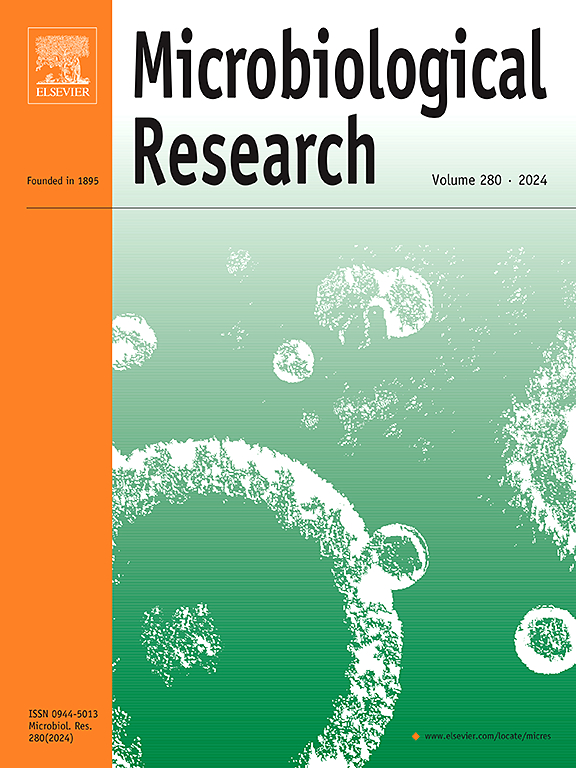Influence of environmental and agronomic variables on soil microbiome in citrus orchards: A comparative analysis of organic and conventional farming system
IF 6.1
1区 生物学
Q1 MICROBIOLOGY
引用次数: 0
Abstract
Crop health and productivity depend on the structure and functionality of soil microbiota associated with the root system of plants. The agricultural policy of the European Union promotes organic farming systems to ensure environmental sustainability and food safety. The objective of this study was to investigate the impact of organic farming on soil microbiome in citrus orchards. The soil microbiota of eight conventionally and seven organically managed commercial citrus orchards across eastern Sicily was characterised using Illumina sequencing and BeCrop® primers for PCR amplification. The structure (diversity and relative abundance) and functionality of soil bacterial and fungal communities depended primarily on the sampling site. Other variables influencing the soil microbiome included soil total carbon content, seasonality, rootstock genotype, soil tillage and irrigation system. The latter three exerted differential effects on either bacterial or fungal communities. Conversely, age and visible health status of the tree had negligible influence on both communities. The differences between organically and conventionally managed citrus orchards accounted for a significant proportion of the variability, indicating a relevant effect of the farming system on soil microbiome. Organically managed orchards compared to those managed conventionally exhibited higher microbial diversity and a unique composition of nutrient-cycling microbes. In particular, organic farming promoted beneficial microbial functions, such as nitrogen fixation and phosphorus solubilization. Findings provide insights into the dynamic and complex interactions between environmental variables and soil microbial communities in citrus orchards, confirming the potential of microbial diversity as an indicator of sustainability in agricultural systems.
环境和农艺变量对柑桔园土壤微生物组的影响:有机与常规耕作制度的比较分析
作物的健康和生产力取决于与植物根系相关的土壤微生物群的结构和功能。欧盟的农业政策促进有机农业系统,以确保环境的可持续性和食品安全。本研究旨在探讨有机耕作对柑橘果园土壤微生物群的影响。利用Illumina测序和BeCrop®引物进行PCR扩增,对西西里岛东部8个传统管理柑橘果园和7个有机管理柑橘果园的土壤微生物群进行了表征。土壤细菌和真菌群落的结构(多样性和相对丰度)和功能主要取决于采样地点。影响土壤微生物组的其他变量包括土壤全碳含量、季节、砧木基因型、土壤耕作方式和灌溉制度。后三者对细菌或真菌群落的影响不同。相反,树木的年龄和可见健康状况对两个群落的影响可以忽略不计。有机和常规管理柑橘果园之间的差异占变异的很大比例,表明耕作制度对土壤微生物组的相关影响。与常规管理的果园相比,有机管理的果园表现出更高的微生物多样性和独特的营养循环微生物组成。特别是,有机耕作促进了有益微生物的功能,如固氮和增磷。研究结果揭示了环境变量与柑橘果园土壤微生物群落之间动态和复杂的相互作用,证实了微生物多样性作为农业系统可持续性指标的潜力。
本文章由计算机程序翻译,如有差异,请以英文原文为准。
求助全文
约1分钟内获得全文
求助全文
来源期刊

Microbiological research
生物-微生物学
CiteScore
10.90
自引率
6.00%
发文量
249
审稿时长
29 days
期刊介绍:
Microbiological Research is devoted to publishing reports on prokaryotic and eukaryotic microorganisms such as yeasts, fungi, bacteria, archaea, and protozoa. Research on interactions between pathogenic microorganisms and their environment or hosts are also covered.
 求助内容:
求助内容: 应助结果提醒方式:
应助结果提醒方式:


